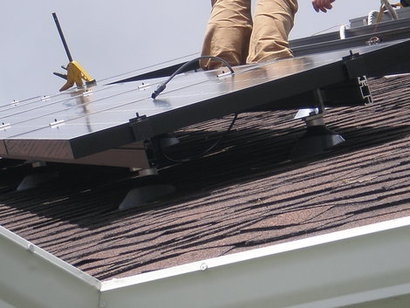
The Victorian election result should be a warning to all political parties that voters expect a strong clean energy policy in the upcoming New South Wales election, the Clean Energy Council said last week, releasing the policy directive package. The Labor Party was relected to power in what has been described as a landslide victory over the Liberals. Labor now has more seats than the party has held at any point over the last 15 years. It’s clean energy policies were a prime factor in the party’s electoral success, signalling a potential abandonment of the Liberal Party, which prioritises coal and is ferociously opposed to renewables, by Australian voters.
Clean Energy Council Chief Executive Kane Thornton said political parties would do well to take notice of the voter response to the Victorian Government’s positive election campaign on increasing clean energy in the state.
“The toxic political environment in Canberra has failed Australians, and both the public and the energy industry are now looking to state governments for leadership” Mr Thornton said. “The centrepiece of the clean energy industry’s policy directives is a strong target for renewable energy, accompanied by a reverse auction programme to give financiers the necessary confidence to invest in the state. The large-scale renewable energy projects currently under construction in NSW add up to almost $4.3 billion of investment and almost 2000 direct jobs, and will increase the reliability of the NSW system as coal generation continues to close. But without strong policy from the next NSW Government, this momentum in new renewable energy investment is likely to stall”.
The measures recommended by the Clean Energy Council champion the use of clean energy to improve the affordability of rental housing, as well as introduce targeted skills training and measures to encourage large-scale renewable energy, rooftop solar and home batteries. Every policy has been supported by one or both parties in the recent Victorian election.
Mr Thornton added that renewables and storage provided a massive opportunity to deliver economic benefits for NSW and lower power prices, while empowering customers to take control of their power bills.
“The NSW Government has recently acknowledged the importance of reforming the electricity network to support the continued rollout of renewable energy in the state” Thornton said. “Its Transmission Infrastructure Strategy in particular will be important to open up regions of the state for new renewable energy projects. We call on all parties in New South Wales to clearly articulate their policies to deliver cleaner, more affordable and secure energy for the state”.
The policy recommendations from the Clean Energy Council include:
Large-scale renewables
Establish a 2030 clean energy target
Introduce New South Wales reverse auctions for renewable energy
Develop a transmission investment strategy for new renewable energy zones
Identify and introduce initiatives to drive skills and training
Rooftop solar and batteries
Drought-proof farmers using solar and batteries
Support community energy and microgrids
Solar and batteries for schools
Introduce minimum energy affordability requirements for rental properties and establish a proram to encourage solar power to be installed on rental housing at no upfront cost to tenants
Make all new houses energy self-sufficient with solar and storage
Introduce targeted support for batteries
For additional information:

